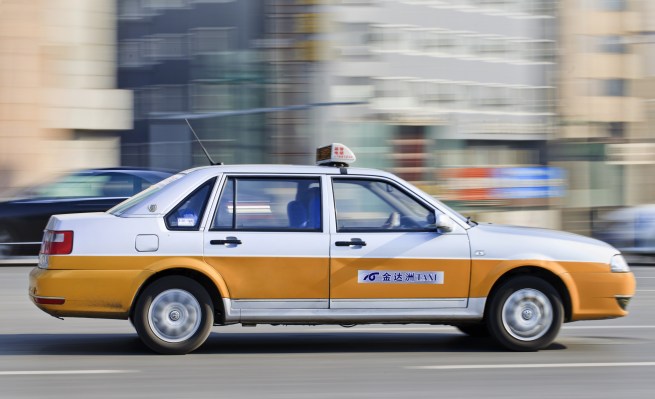Didi Chuxing, the ride-sharing firm that leads Uber in China, has denied a report that it plans to go public in the U.S. next year.
Just days after Didi announced a landmark $1 billion investment from Apple, Bloomberg today reported that the firm is eying an IPO in New York within the next 18 months. Bloomberg’s sources claim Didi, which is raising $3 billion more at a $26 billion valuation right now, hasn’t selected an exchange or banks at this point, and that a listing is subject to how it performs against Uber in China.
Didi denied the claim, and added that it has no IPO plans at all, U.S.-based or otherwise.
“We currently have no IPO plan, so there’s no point of talking about location or schedule,” a spokesperson said in a statement to TechCrunch.
Reliable data for the on-demand ride industry is hard to get hold of, but analysts are united in agreement that Didi is ahead of Uber in China by some margin. The company claims to have 14 million drivers and 300 million active users across its range of services, which include private cars, peer-to-peer rides, chauffeuring, bus services and more. Leaked Uber documents suggest that China accounts for a number of its biggest cities worldwide, but it isn’t clear how many users or daily rides the service has in the country.
There have been rumors of a Didi IPO before. Prior to the merger of China’s two largest Uber rivals — Didi Dache-Kuaidi Dache — which created the company, Didi’s then-CEO spoke publicly of his intent for a public listing with the U.S. a preferred location. However, much has happened since the two rivals merged in a multi-billion dollar consolidation in early 2015, rather than fighting each other, the two companies have taken on Uber, which has raised billions of dollars for its entity in China, which is valued at $7 billion.
There’s certainly a track record of U.S. IPOs from top tech companies in China — Alibaba, one of Didi’s most prominent shareholders, sits on the NYSE — but a dual U.S.-China listing would appear to make more sense for Didi when the time comes.
Didi has played up its homegrown status in China since it represents a clear distinction to Uber and could help curry favor in the regulatory battles that are inevitable with the ride-sharing business. It would seem counter productive for it to then list only in China, given the Chinese government’s efforts to promote local tech companies. Indeed, forging links to Chinese companies is one credible reason put forward for Apple’s investment in Didi, which is certainly out of character for the U.S. company based on previous deals.
Beyond needing to focus on its nationalism, a 2017 listing would see Didi beat Uber to going public — but that might not necessarily be a race worth winning. The market for tech IPOs has slowed down massively in the U.S., with no public listing from tech firms in Q1 2016. With Uber the de facto global leader (and pioneer) of the ride-sharing industry, it remains to be seen whether listing first could have a negative impact on Didi’s IPO.
As The Information’s Amir Efrati pointed out, much of Didi’s value may be derived by its position compared to Uber. Letting the U.S. firm go first might educate the market, set expectations and provide a base for a stronger Didi listing.
